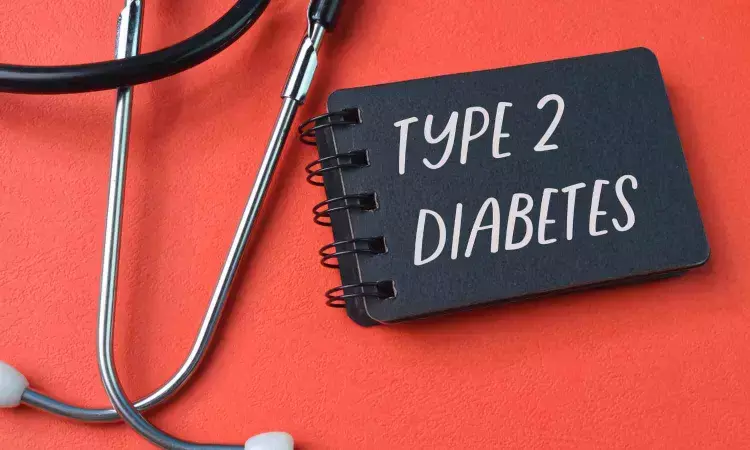- Home
- Medical news & Guidelines
- Anesthesiology
- Cardiology and CTVS
- Critical Care
- Dentistry
- Dermatology
- Diabetes and Endocrinology
- ENT
- Gastroenterology
- Medicine
- Nephrology
- Neurology
- Obstretics-Gynaecology
- Oncology
- Ophthalmology
- Orthopaedics
- Pediatrics-Neonatology
- Psychiatry
- Pulmonology
- Radiology
- Surgery
- Urology
- Laboratory Medicine
- Diet
- Nursing
- Paramedical
- Physiotherapy
- Health news
- Fact Check
- Bone Health Fact Check
- Brain Health Fact Check
- Cancer Related Fact Check
- Child Care Fact Check
- Dental and oral health fact check
- Diabetes and metabolic health fact check
- Diet and Nutrition Fact Check
- Eye and ENT Care Fact Check
- Fitness fact check
- Gut health fact check
- Heart health fact check
- Kidney health fact check
- Medical education fact check
- Men's health fact check
- Respiratory fact check
- Skin and hair care fact check
- Vaccine and Immunization fact check
- Women's health fact check
- AYUSH
- State News
- Andaman and Nicobar Islands
- Andhra Pradesh
- Arunachal Pradesh
- Assam
- Bihar
- Chandigarh
- Chattisgarh
- Dadra and Nagar Haveli
- Daman and Diu
- Delhi
- Goa
- Gujarat
- Haryana
- Himachal Pradesh
- Jammu & Kashmir
- Jharkhand
- Karnataka
- Kerala
- Ladakh
- Lakshadweep
- Madhya Pradesh
- Maharashtra
- Manipur
- Meghalaya
- Mizoram
- Nagaland
- Odisha
- Puducherry
- Punjab
- Rajasthan
- Sikkim
- Tamil Nadu
- Telangana
- Tripura
- Uttar Pradesh
- Uttrakhand
- West Bengal
- Medical Education
- Industry
Short and long sleep duration associated with blood vessel damage in recently diagnosed type 2 diabetes patients: Study

New research to be presented at this year's Annual Meeting of the European Association for the Study of Diabetes (EASD) (Madrid, 9-13 September) shows that people recently diagnosed with diabetes who experience short or long sleep duration are more likely to experience microvascular disease (damage to the small blood vessels), which could ultimately lead to more serious complications. The study is by Mette Johansen and Thomas Olesen, Steno Diabetes Center Odense, Odense University Hospital, Odense, Denmark, and colleagues.
Microvascular complications, such as retinopathy and nephropathy, are major contributors to complications associated with type 2 diabetes (T2D). Increasing evidence suggests that variations in sleep duration may influence the risk of developing diabetes-related complications. This study aimed to explore the relationship between sleep duration and the presence of microvascular disease in individuals newly diagnosed with T2D.
For their analysis the authors used data from The Specialist Supervised Individualized Multifactorial Treatment of New Clinically Diagnosed Type 2 Diabetes in General Practice (IDA) study – a substudy from the Danish Centre for Strategic Research in Type 2 Diabetes (DD2) cohort.
Sleep duration at night was measured using Axivity AX3 accelerometers, worn by participants for a period of 10 days. Sleep duration at night was classified into three categories: short (<7 h), optimal (7 to <9 h), and long (9 h or more). Microvascular disease (damage of small blood vessels) was defined as either urine albumin/creatinine ratio (UACR) ≥ 30 mg/g or presence of diabetic retinopathy (DR) assessed by either mydriatic retinal imaging or ophthalmoscopy.
Computer modelling was then applied using optimal sleep duration as the reference group adjusted for age, sex, BMI, systolic blood pressure, smoking habits, glycated haemoglobin (HbA1c – a marker of blood sugar control), duration of diabetes, and antihypertensive treatment, and used to estimate odds ratios (ORs) between sleep duration groups.
In total, 396 participants had valid sleep duration measurements, UACR measurement and eye examination. The median age was 62 years with a mean diabetes duration of 3.5 years, and 175 were females (44%). The cohort predominantly consisted of overweight individuals, with a median BMI of 31 (in the obese range), and 68% (n=285) were on antihypertensive medication.
Distribution of sleep duration was 12% (n=49) with short sleep duration, 60% (n=238) with optimal sleep duration, and 28% (n=109) with long sleep duration. Prevalence of microvascular damage was 38%, 18%, and 31% in the short, optimal, and long sleep duration groups, respectively. Short sleep duration was significantly associated with a 2.6 times increased risk of microvascular disease compared with optimal sleep duration. Similarly, long sleep duration was independently associated with a 2.3 times increased risk of microvascular disease compared to optimal sleep duration.
Furthermore, the association between short sleep duration and microvascular disease was accentuated by age. Interestingly, for participants aged under 62 years, short sleep duration only increased the risk of microvascular damage by 23% compared with optimal sleep duration; but for those participants aged 62 years and over, short sleep duration was associated with a 5.7 times increased risk of small blood vessel damage compared to optimal sleep duration. The effect of age on the relationship between long sleep duration and microvascular disease was not statistically significant.
The authors conclude: “In recently diagnosed T2DM patients, both short and long sleep durations are associated with a higher prevalence of microvascular disease compared to optimal sleep duration at night. Age amplifies the association between short sleep duration and microvascular disease, suggesting increased vulnerability among older individuals.”
They add: “Lifestyle changes in patients with type 2 diabetes may include sleep interventions. However, further studies are needed to establish the role of sleep duration and quality in these patients.”
Reference:
Study finds short and long sleep duration associated with blood vessel damage in those recently diagnosed with type 2 diabetes, Diabetologia, Meeting: Annual Meeting of the European Association for the Study of Diabetes (EASD).
Dr Kamal Kant Kohli-MBBS, DTCD- a chest specialist with more than 30 years of practice and a flair for writing clinical articles, Dr Kamal Kant Kohli joined Medical Dialogues as a Chief Editor of Medical News. Besides writing articles, as an editor, he proofreads and verifies all the medical content published on Medical Dialogues including those coming from journals, studies,medical conferences,guidelines etc. Email: drkohli@medicaldialogues.in. Contact no. 011-43720751


